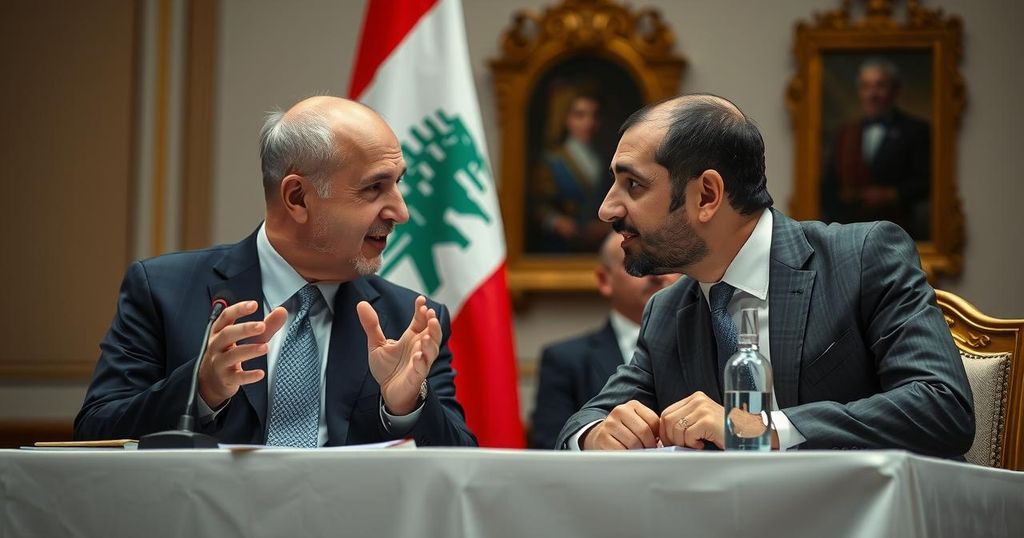On Saturday, Lebanese Prime Minister Najib Mikati visited Syria for the first time to meet with new Syrian leader Ahmad al-Shara. This meeting follows Lebanon’s recent presidential election and comes amidst ongoing border tensions after clashes wounded several Lebanese soldiers. The discussions focus on stability in Syria and border security issues that could affect Lebanon.
On Saturday, Lebanon’s Prime Minister Najib Mikati made his inaugural official visit to Syria, a significant moment as it marked his first meeting with the new Syrian government following recent border tensions. The meeting took place in Damascus, and Prime Minister Mikati engaged in discussions with Ahmad al-Shara, the leader of the newly installed Syrian administration, which had recently emerged after a swift military campaign that ended Bashar al-Assad’s long-standing regime.
The backdrop of this visit is notable, especially considering the recent election of Joseph Aoun as Lebanon’s president after a protracted two-year vacancy in the position. Mr. Aoun is expected to initiate consultations for appointing a new prime minister in the upcoming week. The meeting between Mikati and al-Shara is crucial as the Syrian leader faces the arduous task of restoring stability in a nation ravaged by over a decade of civil conflict, which has fragmented the country into various regions controlled by different factions, leading to widespread violence and disorder.
Lebanon remains vigilant, apprehensive about the potential spillover of Syria’s turmoil into its own territory. Tensions along the border escalated recently due to conflict involving Syrian militants, resulting in injuries to at least five Lebanese soldiers while they attempted to secure a border crossing. This meeting underscores the importance of diplomatic engagement between Lebanon and Syria, particularly in light of safety and security concerns in the region.
The recent meeting between Lebanon’s Prime Minister Najib Mikati and Syrian leader Ahmad al-Shara reflects ongoing diplomatic interactions in a region severely affected by conflict. Lebanon has been cautious regarding Syria’s instability, given its proximity and historical ties with the neighboring state. The establishment of a new government in Syria after years of civil war and the election of a new president in Lebanon provide a pivotal backdrop for these discussions, highlighting the need for collaboration amidst lingering tensions along their shared border.
In summary, Prime Minister Najib Mikati’s visit to Syria represents a critical step in Lebanon’s diplomatic approach towards its neighbor as both nations navigate recent political changes. With security challenges persistently looming on the border, it is imperative for both countries to establish a cooperative relationship that addresses mutual concerns and enhances regional stability.
Original Source: www.nytimes.com






